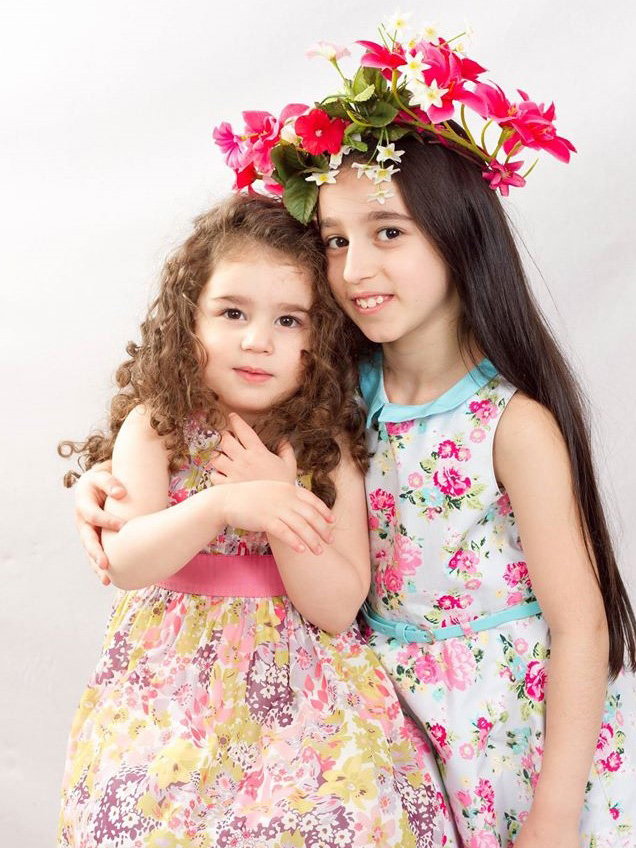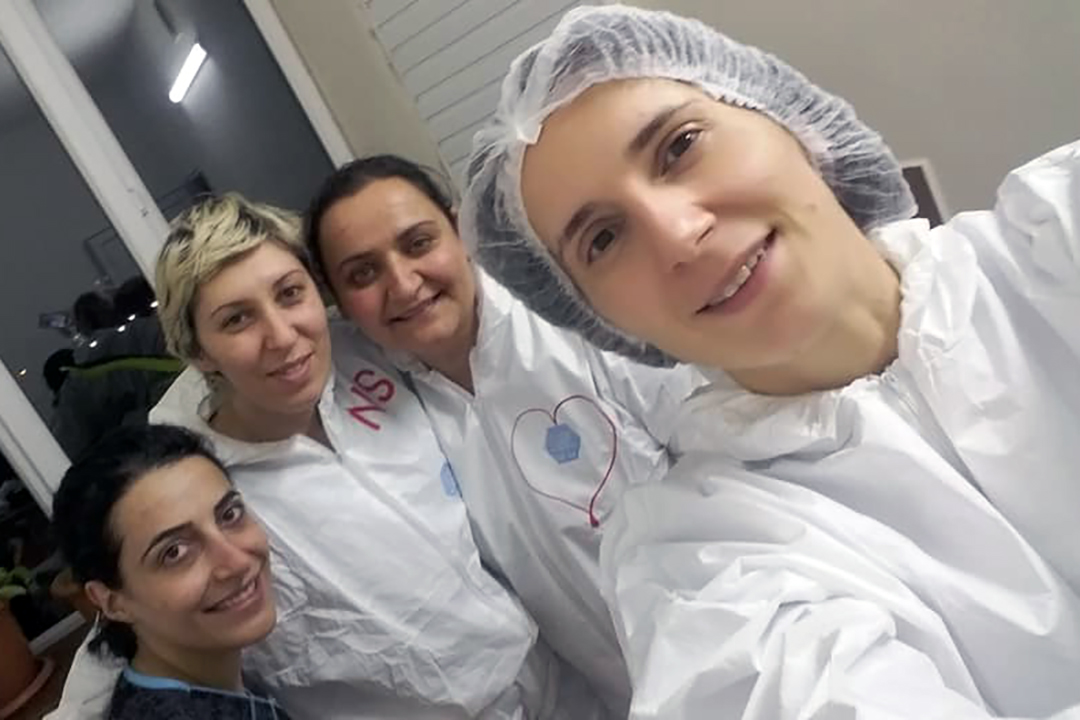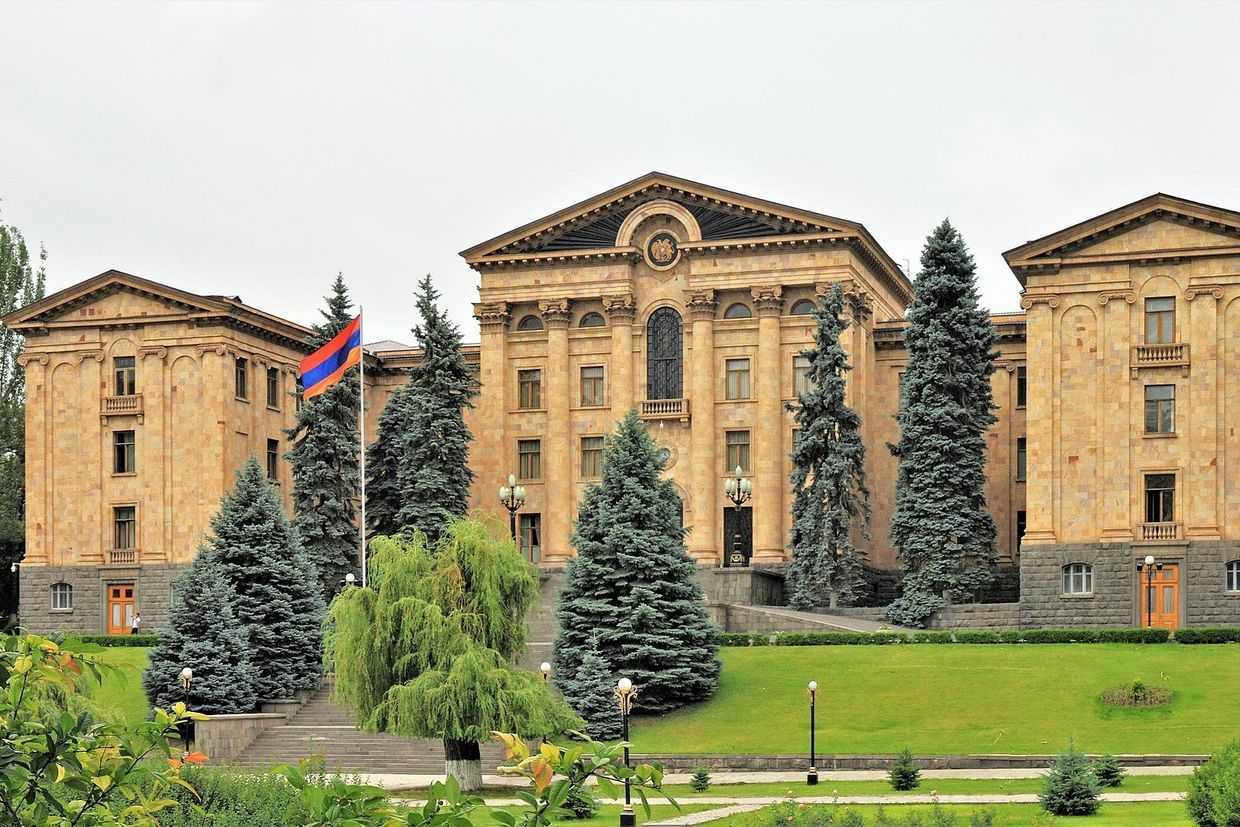
When Armenia confirmed its first case of COVID-19 on 1 March in a 29-year old repatriated from Iran, he was taken to the Nork Infectious Clinical Hospital in Yerevan. Naira Stepanyan, 39, a doctor specialising in infectious diseases, was the first to treat him.
‘When the first case was confirmed, I realised that everything was just beginning.’
‘It was evening. Until that moment, I was living a normal work schedule: family-work-daily life… After the confirmation of the first case, everything changed: from working conditions to my emotional state.’
‘The confirmation of the first case made me feel alert and at the same time alarmed. From that moment on, I have not gone home.’
‘Mostly I was worried about my family; my mother is old, I also thought a lot about my daughters. It’s much safer if we don’t meet.’
‘I have two daughters who are 6 and 12 years old. Today, my mother — their grandmother — takes care of them; she left her job just for that purpose. My husband is also a medical worker, but unlike me, he spends the nights at home.’

‘My 6-year-old daughter, Inessa, still doesn’t understand that I can’t go home. The first days were especially difficult. I was informed by phone that she was locking herself in her room from time to time. There was even a moment when she refused to participate in distance learning classes.’
‘Even now she sometimes refuses to talk to me on the phone; she makes a caprice. My elder daughter, 12-year-old Varduhi, behaves like a real adult. She has not complained yet.’
‘The admission of a patient infected with coronavirus and the mixed feelings caused me to develop a fever. I had a temperature for a few days and then I got tested. The result was negative. I resumed my work immediately.’
‘We will work until we are exhausted’
‘For the first few days after the confirmation of the first case, my colleagues and I spent the nights in the hospital where we worked. However, a few weeks ago, a high-class hotel in the centre of Yerevan where my colleagues and I now live was specially provided to accommodate us.’
‘We work very long hours. Usually, we finish work at 02:00 or 04:00 in the morning, then go to the hotel to have a little rest and the working day begins again from 09:00. Work-sleep-work; we can’t even think of anything else. We have long forgotten about the use of many feminine care products: nail and hair-styling, makeup, and manicures have already been forgotten.’

‘We wear special overalls at work, the hair is covered with a cap, and we protect our faces with a mask and glasses. Theoretically, there is no need for make-up or other special care, it would be lost under these clothes. But as a woman, sometimes I miss my sleek hands and hair.’
‘All of this now seems as luxurious as many other household trifles. Sometimes emotions take their place. In this case, I just cry — It calms me down. We need to let the tears stream out, otherwise, we will become a nervous wreck.’
‘We also become annoyed and offended by people’s indifferent attitudes. Sometimes there is a weakening of vigilance among the public.’
‘It’s very important to remember to leave the house only when absolutely necessary and to take the advice of specialists seriously. We, the doctors, work 24 hours a day, we miss the warmth of our families. And every time we see a picture crowded with people on the Internet, we get upset.’
‘People thank us very much, we hear a lot of warm words. However, along with this, people should not lose their sense of responsibility.’
‘We are also financially secure. There is no reason to complain. The work done does not remain uncompensated. Apart from our salary, we receive an additional incentive payment. We also get very good food, but the longing is suffocating.’
‘Nothing can replace my family. The longing for them torments me.’
‘As soon as all this is over, I will run home and hug my daughters tightly. Then I will sleep for three days in a row, hugging my daughters, breathing in their smell… I will sleep in their bed for three days’
‘I still don’t know when that day will come. I know only one thing — we will work as much as needed until we are exhausted. But I’m optimistic.’
‘I am upset by the fact, that even if it turns out that we have finally overcome the virus and can return to our former lives, in any case, I will have to live in isolation for 14 days more, to get tested. And only in case of a negative answer will I be able to fulfil my dream of hugging my daughters and sleeping with them for three days.’






